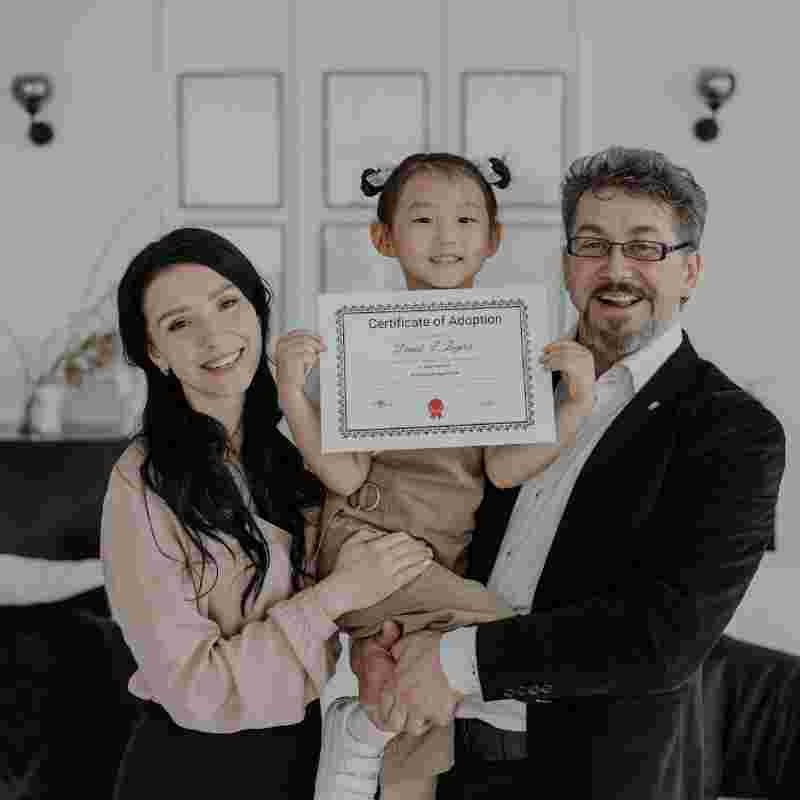
The process of Child Adoption in Pakistan involves several important steps to ensure the child’s well-being and the legal rights of the adoptive parents. It begins with an initial consultation to assess eligibility, followed by filing a suit in the Family Court.





Top 5 Ways to Prevent Copyright Violations in Your Content
Feel free to get in touch with us, and our team will respond promptly to assist you with your needs.
Adopting a child in Pakistan is a significant decision that involves following specific legal procedures to ensure that the child’s welfare and rights are protected. Furthermore the process can be intricate, but it is designed to safeguard both the child and the adopting parents. Below is a more detailed explanation of the entire adoption process in Pakistan:
In Pakistan, prospective adoptive parents must meet certain eligibility criteria before they can adopt a child. These include:
The adoption process begins with a consultation with a family law lawyer, adoption agency, or the social welfare department. This is an essential step to understand the adoption process, your legal rights, and responsibilities.
After the initial consultation, the next step is to file a petition for adoption in the Family Court. The petition should include:
This petition is filed in the relevant district family court, which will begin the legal proceedings. The court assesses the adoptive parents’ suitability and ensures that the adoption is in the best interest of the child.
A home study is a thorough investigation conducted by the social welfare department or authorized agencies. During this study, social workers visit the adoptive family’s home to assess the environment and living conditions. They also interview the adopting parents and their family members to evaluate their readiness for adoption.
The emotional maturity and stability of the adoptive parents.
After the home study, the family court will schedule a hearing. During the hearing, the court will evaluate all the documents, the findings from the home study, and any other relevant information. The primary concern of the court is the best interests of the child.
If the child’s biological parents or legal guardians are known, their consent for the adoption will be obtained. In cases where the child is an orphan, the court may look into the guardianship arrangements.
In some cases, testimony may be heard from witnesses who can vouch for the adoptive parents’ character or suitability.
The judge will review all factors to ensure that the adoption is being done in the best interests of the child and that the adoptive parents meet the legal criteria.
If the court is satisfied with the petition, evidence, and all other factors, it will issue an adoption order. This order legally recognizes the child as part of the adoptive family, granting the child the same rights as a biological child, including inheritance rights.
The child’s birth certificate will be amended to reflect the adoptive parents as the legal parents. This ensures that the child’s legal identity matches their new family.
After the adoption order, post-adoption follow-up services are provided to ensure that the child is settling well into the new family. The social welfare department may conduct periodic checks to ensure the child’s well-being.
Adoptive families may also be offered counseling services to help the child adjust to their new environment and to assist the family in managing any challenges during the adjustment phase.
Guidance is provided on how to integrate the child into the family, particularly for older children who may have more complex emotional needs.
After all legal procedures are completed, the adoption is considered final. The child now legally belongs to the adoptive family, and they are entitled to all legal rights, including inheritance and familial rights.
The adoptive parents are responsible for the child’s upbringing, education, health, and general welfare.
In this type of adoption, a Pakistani citizen adopts a child who is also a Pakistani citizen. The process typically involves the local court system and social welfare departments.
For Pakistani families interested in adopting from another country, or vice versa, intercountry adoption procedures apply. This involves international regulations and compliance with conventions like the Hague Convention on Inter country Adoption.
In cases where the adoptive parents are relatives of the child (e.g., aunts, uncles, or cousins), the adoption process may be more straightforward, but it still requires court approval.
Our team consists of experienced family law professionals who specialize in child adoption cases in Pakistan. We provide clear, step-by-step guidance on the legal requirements, documentation, and procedures involved in adopting a child.
From the initial consultation to the finalization of the adoption, we offer continuous support. We ensure that all legal requirements are met and that the process is completed efficiently and in compliance with Pakistani adoption laws.
Adoption can be an emotional journey, and we understand the importance of emotional support for both adoptive parents and the child. We connect you with counseling services, ensuring that the process is as smooth as possible for your family.
We prioritize your privacy and maintain strict confidentiality throughout the adoption process. Your personal information and the details of the adoption are handled with the utmost care and discretion.
Our services go beyond just legal advice. We take a holistic approach to ensure that the child’s best interests are always at the forefront of the adoption process.
If you’re considering adoption in Pakistan, our team is here to help you navigate every step of the process. Here’s how you can get started:
We are dedicated to ensuring that every child finds a loving home, and every family is supported in their adoption journey. With our Child Adoption Services, you can be assured of expert guidance, transparency, and compassionate support throughout the entire process.
Let us help you fulfill your dream of expanding your family through adoption. Contact us today to begin the journey of adopting a child in Pakistan.
“Ahmed Ali Dewan & Co. is a trusted law firm specializing in intellectual property, criminal law, family law, and corporate law. We provide expert legal services tailored to your needs, offering professional guidance in complex legal matters. Contact us today”